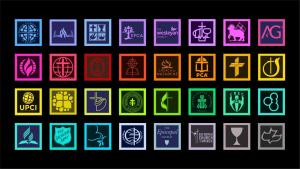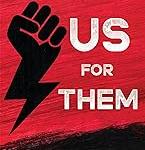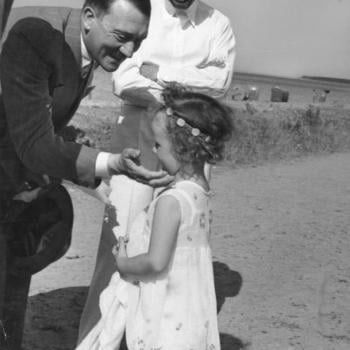Overcoming Stereotypes and Caricatures
Even as I type the title of this blog essay I realize how impossible it sounds—even to me. I believe one of humanity’s biggest problems is mental stereotypes and caricatures (a caricature is a stereotype taken to the next level) of “other people.” We all have them in our heads. They come from the media (broadly defined to include books and other printed material), from popular culture other than media, and from our own fears and faulty knowledge of other people than our own tribes.
Here I have to limit what I discuss about this subject—to Christians and our stereotypes and caricatures of others, especially other Christians.
I grew up in a Christian milieu that was awash in stereotypes and caricatures—even of other Christians. Maybe especially of other Christians. That led us to blindly reject them. As I grew in my knowledge and experiences of other Christians than “us” (my tribe) I began to realize how many of the thoughts and images I had of them were false or distorted.
For example, I was raised to imagine and even believe that all Catholics were false Christians who worshiped Mary, blindly followed the pope, and never read their Bibles. But it wasn’t only Catholics! Eastern Orthodox were worse! They were sheer pagans parading themselves as Christians. Then there were “real Christians” who were “cold” or “lukewarm” and “carnal.” They were worldly, at least compared with us. Lutherans, Presbyterians, Methodists, etc.
Then there were so-called “cultists.” Churches and people who claimed to be Christian but “obviously” couldn’t be: Mormons (now Latter-day Saints) and others. Many others.
Then my mind began to change through studying and encountering Christians of traditions and communities different from mine. I think my first such mind-opening experiences were at family reunions. I listened to the conversations about religion between my parents and their relatives. I realized, for example, that our Christian Reformed relatives were real Christians. Then came my experiences with Youth for Christ. Rubbing shoulders with real Christians of many different denominations confused me at first. Then I came to believe they “could be” as Spirit-filled as we were even though they didn’t speak in tongues. And they went to movies in movie theaters (the devil’s dens).
Then came my habit of frequenting other churches than ones associated with my own denomination and tradition. And reading books and articles by men and women of other denominations and traditions. For some reason I can’t quite remember I went out of my way during college and seminary to learn about Seventh Day Adventists. Growing up, I was told they were cultists. I changed my mind, quietly, by visiting their churches and interviewing their pastors and writing research papers about them.
I have to admit that SOME encounters have only resulted in confirming the stereotypes and caricatures I grew up with. But in most cases I came to realize that even within those churches not everyone was alike. I had to stop “globalizing” about them.
Some years ago I was invited to Brigham Young University, three times, for inter-religious dialogue events. That really challenged many of my stereotypes and caricatures about Mormons/Latter-day Saints. I came to believe that at least some of them are Christians! I went out of my way to wander away from the conference and sit with students in the student center and chat about things. I found them to be delightful, sincere, God-fearing, Jesus-loving, Bible-believing Christians (but confused about doctrines).
Over my many years as a evangelical Protestant theologian I fell into many ecumenical meetings. I even arranged some dialogue events between evangelicals and liberal Protestants. I invited speakers representing many religious traditions to my classes. I read the books they gave me. I began to realize this: You cannot really understand any religious group fully or correctly from the outside.
I remembered how I realized that most of the people I met when I was young thought being “Pentecostal” meant snake-handling, rolling in the aisles, wearing funny clothes and hair (no make up and no shorts!). We didn’t fit many of the stereotypes and caricatures that I STILL encounter when I tell people I grew up Pentecostal.
Here’s a very recent example. I told a man I met, a Baptist minister, that I am now a Mennonite. He immediately began talking about some Amish people he has seen—around where he lives in Indiana. I tried to tell him that we are not Amish or very much like Amish. We are “modern Mennonites” hardly different from evangelical Baptists.
How can we Christians overcome our stereotypes and caricatures about other Christians? Well, if you can’t visit their churches and engage in dialogue with them, try watching Youtube videos where they themselves talk about their faith, their forms of worship, their beliefs, etc. Don’t rely on only secondary sources, go right to them themselves. Listen carefully. I’m not suggesting that you believe everything they say, but be open to what they say about themselves. You might be very surprised, as I have been.
Doubt your mental images of Christians of different traditions and communities. Question them. Learn about different forms of Christianity. I’m not suggesting that all who call themselves “Christians” are. However, I know that I grew up with extremely narrow views about that, about “real Christians,” and I know that many, very many, of my students (and I’ve taught thousands) come to classes with heads full of caricatures and stereotypes about other Christians than those with whom they grew up.
*If you choose to comment, make sure your comment is relatively brief (no more than 100 words), on topic, addressed to me, civil and respectful (not hostile or argumentative) and devoid of pictures or links.*


















